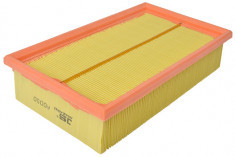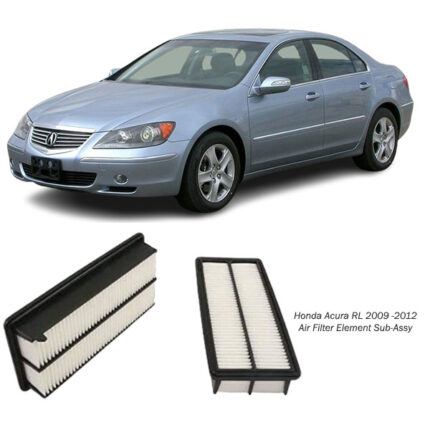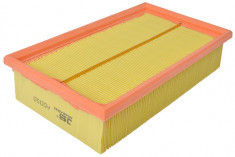-20%
Get Air Filter For Mercedes Benz E200, E240, E280, E320
Air filters are essential components of a vehicle’s engine system, responsible for trapping contaminants and impurities present in the air before they enter the engine. They play a crucial role in ensuring that the engine receives clean and debris-free air, which is vital for optimal performance and longevity. In this discussion, we’ll explore the benefits of air filters and the signs that indicate when a car may need one.
Benefits of Air Filters:
- Contaminant Removal: The primary function of an air filter is to trap dust, dirt, pollen, and other airborne particles present in the air before they reach the engine. These contaminants can be harmful to engine components if allowed to enter the combustion chambers. By capturing these particles, air filters prevent them from causing damage to the engine and help maintain its overall health and performance.
- Engine Protection: Clean air is essential for the proper operation and longevity of the engine. Air filters help protect sensitive engine parts, such as cylinders, pistons, and valves, from abrasive particles and debris present in the air. By preventing contaminants from entering the engine, air filters contribute to reducing wear and extending the lifespan of critical engine components.
- Optimized Fuel Efficiency: Clean air is vital for achieving optimal fuel combustion and efficiency. When the engine receives clean air, it can achieve more complete combustion of fuel, resulting in improved fuel efficiency and reduced emissions. By ensuring that the engine receives a steady supply of clean air, air filters help maximize fuel efficiency and minimize fuel consumption.
- Enhanced Engine Performance: Clean air is essential for achieving smooth engine operation and optimal performance. Air filters help maintain proper air flow to the engine, ensuring that it receives the right amount of oxygen needed for combustion. By providing the engine with clean and unrestricted airflow, air filters contribute to smoother acceleration, responsive throttle response, and overall improved engine performance.
- Reduced Maintenance Costs: Regularly replacing the air filter is a relatively inexpensive maintenance task compared to repairing or replacing damaged engine components. By preventing contaminants from entering the engine, air filters help reduce the risk of costly repairs and downtime associated with engine damage. Investing in a quality air filter and adhering to recommended replacement intervals can help save money on maintenance over the life of the vehicle.
- Environmental Benefits: Properly functioning air filters not only protect the engine but also help reduce harmful emissions. Clean air combustion results in fewer pollutants being released into the environment, contributing to improved air quality and reduced environmental impact.
Signs a Car Needs a New Air Filter:
- Reduced Engine Performance: A clogged or dirty air filter can restrict airflow to the engine, leading to reduced engine performance. You may notice symptoms such as sluggish acceleration, decreased power output, or poor throttle response, indicating a potential air filter issue.
- Decreased Fuel Efficiency: An inadequate supply of clean air to the engine can result in inefficient fuel combustion, leading to decreased fuel efficiency. If you notice a sudden drop in fuel economy or an increase in fuel consumption, it could be due to a clogged air filter restricting airflow to the engine.
- Black Smoke from Exhaust: A clogged air filter can cause an imbalance in the air-fuel mixture, resulting in incomplete combustion and the production of black smoke from the exhaust. If you observe excessive black smoke coming from the tailpipe, it may indicate a problem with the air filter or another issue affecting engine performance.
- Unusual Engine Sounds: A restricted airflow due to a clogged air filter can cause the engine to work harder to draw in air, resulting in unusual noises such as whistling, wheezing, or sucking sounds. If you hear any abnormal noises coming from the engine compartment, it’s worth checking the air filter for signs of clogging or contamination.
- Check Engine Light: The check engine light may illuminate on the dashboard if the engine’s computer detects a problem with the air intake system, including issues related to restricted airflow or inadequate air filtration. A clogged air filter can trigger a check engine light, signaling the need for inspection and potential replacement of the air filter.
- Visible Dirt or Debris: A visual inspection of the air filter can reveal signs of dirt, dust, or debris buildup, indicating that it may be time for replacement. If the air filter appears dirty or clogged, it should be replaced to ensure proper airflow and engine performance.
Follow us on Facebook for more parts.



